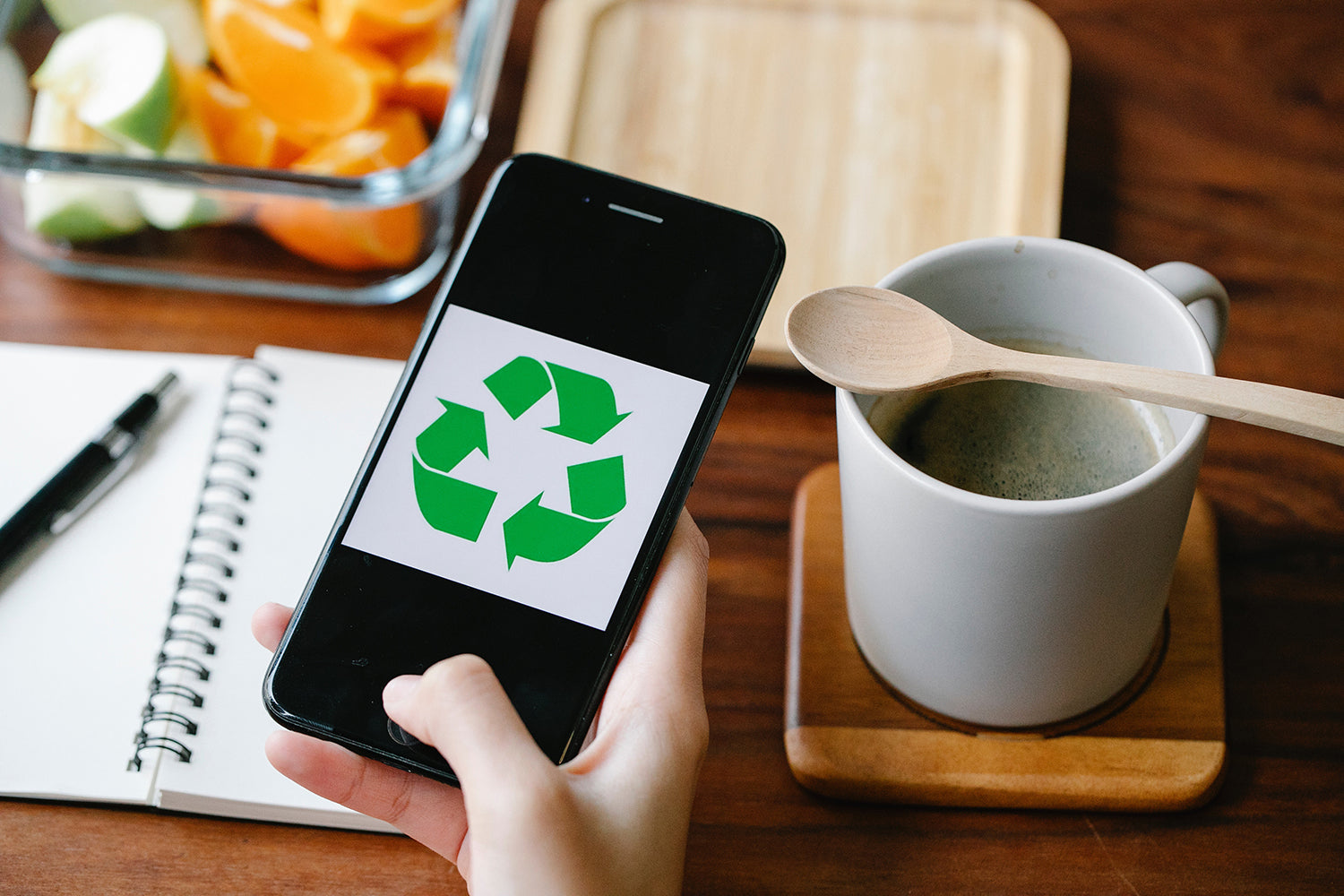A quick guide to choosing the best materials for sustainable custom promotional products
| Apr, 22 , 22
Modern business is about personalization and using sustainable, eco-friendly materials and manufacturing processes. It is visible across the landscape with organizations offering custom promotional products for promotions, giveaways, gifts, etc. People are also becoming more concerned about our actions on the environment and choosing more eco-friendly and sustainable products. It opens a new avenue for businesses worldwide to combine these two aspects and start creating custom promotional merch using eco-friendly materials. In this blog, we will cover various facets of the topic. So, let's start with answering some questions:
What is a promotional product personalization business?
According to the popular definition, the products used by businesses for brand awareness, attracting new customers, motivating employees, gifts, etc., are promotional products. The business of customizing the products according to the organization's specific needs is a promotional product personalization business. The personalization can also be done for other organizations, including non-profits, sports teams, schools, colleges, universities, social media influencers/ celebrities, and individuals. So the products you receive like a t-shirt, hats, coffee mugs, and socks depicting an organization's logo or message are examples of it.
What are eco-friendly products?
Eco-friendly is a broad term representing products that do not harm the environment. They are made from either recycled materials or naturally sourced fabrics like bamboo, and Eco-friendly products don't have toxic chemicals in them causing harm to Earth. The term can be further divided into three categories:
- According to materials:Eco-friendly products are made from organic materials that are not harmful to nature, like organic cotton, wool, etc. These can be made without causing damage to the environment and don't contain toxic chemicals.
- Production process: Products are made using more renewable energy sources like solar power and the least water possible.
- Utilization: Products encouraging environmentally conscious behaviors in consumers, like fabrics made from water bottles, come in the utilization category.
According to market research stats:
- 35% of respondents said choosing sustainable products to protect the Earth.
- 37% said they look forward to environmentally friendly promotional products.
- 80% of people can recall the name of a brand after they receive a promotional product.
So, it is quite lucrative to start creating custom promotional products with eco-friendly materials. For more information regarding the benefits of custom products and selling them, go through these blogs:
https://everlighten.com/blogs/blog/how-to-grow-your-brand-with-personlized-products
https://everlighten.com/blogs/blog/how-to-sell-custom-products
One of the most challenging tasks to create products with sustainable products is the lack of information about fabrics. You can choose various materials to create promotional t-shirts, hoodies, socks, sweaters, tote bags, etc. Each has its pros and cons, and it would be better to understand them fully to succeed. Let's discuss each material:
Cotton:
It is one of the oldest materials used by humans and is pretty popular. Cotton is the most widely used natural fiber used for manufacturing a wide range of products, including custom socks, custom t-shirts, custom hoodies, etc. The question is: Are cotton products sustainable? The answer is both yes and no.
Pros:
Cotton is soft, breathable, hypoallergenic, and biodegradable. The material is pretty inexpensive because of widely produced and in demand. It is also easy to print and design logos and texts on cotton, making it suitable for your sustainable product business.
Cons:
People think because cotton is a natural fiber, it is sustainable, but growing and manufacturing cotton is a water-intensive process. It also involves using a lot of insecticides, pesticides, and other toxic chemicals. So, it is not 100% sustainable fabric.
Alternatives:
There are many sustainable alternative fabrics to cotton for producing promotional products.
- Organic cotton: It is cultivated without any harmful chemicals, and less water is used because it can grow in regions with low water and only rainwater.
- Recycled cotton is divided into two categories: pre-consumer fabric and post-consumer fabric. Pre-consumer cotton is fabric scraps, unsold or damaged products, while post-consumer material is secondhand or used fabric.
- Hemp: People have been using hemp for thousands of years for creating clothes, shoes, socks, etc. It grows worldwide and doesn't need much water; it also returns the nutrients to the soil.
- Bamboo: It is one of the fastest-growing plants that doesn't need fertilizers or pesticides and regenerates back after being cut. Custom bamboo socks are one of the fastest-growing products in the world. The material resembles linen and is durable.
- Supima is a particular type of cotton that only grows in deserts; they have extra-long, strong, and silky fibers. You can design premium promotional products using it.
Polyester:
It is an artificial material and the second most widely used fabric globally. Products made from polyester are inexpensive and durable. It is one of the most popular choices for promotional merch because of its versatility and ease of printing and creating designs and logos.
Pros:
It has some qualities not present in natural fibers, like the ability to retain shape, wrinkle-resistant, and extraordinary moisture-wicking properties. It is one of the go-to materials for producing athletic products like custom athletic socks, t-shirts, shorts, etc. It blends with other natural fibers like cotton to make them extra durable.
Cons:
The material is not as breathable as natural fibers; it traps odor and is easily flammable. Regular polyester is a type of plastic, so it's not bio-degradable; it also releases microplastics when washed, affecting water life.
Alternatives:
While it is not possible to ditch it 100% at the moment without finding an alternative, there are some alternatives to reduce the effects a little.
Recycled polyester is made from the same material used for manufacturing plastic bottles. The process impacts the environment less and also helps in reducing landfills.
The material is high in demand in custom merch manufacturing because it is pretty easy for the sublimation process.
Biobased polyester is one of the most recent alternatives to conventional polyester because it is made from renewable sources like crops or bio-waste. The material is biodegradable and biocompatible, i.e., it doesn't cause harm to water life.
Econyl: It is trademarked recycled nylon created from ocean dumps. The fiber helps create premium hosiery, backpacks, t-shirts, etc. It is also helpful in manufacturing promotional activewear like athletic socks.
Viscose:
Viscose fibers sit between natural and artificial fibers because of their manufacturing process. These are made from wood pulp and require chemical treatment to turn them into valuable clothes. They are popularly known as rayon or artificial silk and are the third most used fabric globally.
Pros:
The material is soft and feels like a blend of cotton and silk. Clothes made from them feel luxurious and premium, and it is biodegradable and blends easily with other fabrics.
Cons:
The manufacturing involves a lot of water and is quite an energy-intensive process. Its stretchability starts becoming less after washing.
Alternatives:
While the alternatives are not 100% sustainable, they will help reduce the harmful effects.
Tencel: It is a material produced using a closed-loop system and recycling every material and chemical used. The fibers are both biodegradable & compostable.
EcoVero: The fiber takes half the amount of water and electricity compared to regular viscose. Their raw materials are harvested from controlled sustainable sources in Europe.
Wool and leather:
Humans have been using wool and leather to produce various garments for thousands of years. The thread comes from sheep, llamas, goats, rabbits, alpaca, etc. With time the use of leather is decreasing because of people's awareness and animal rights groups.
Pros:
Both leather and wool are great for producing winter apparel, including promotional socks, sweaters, jackets, and leather patches. They are durable, odor-resistant, recyclable, and bio-degradable.
Cons:
One of the most significant issues with using them is that it is expensive and difficult to produce colors for logos and designs.
Alternatives:
Two of the main alternatives to these fabrics are:
- Vegan: You need to research because many alternatives are vegan but not sustainable. Instead of wool, you can choose the above materials, like organic cotton, hemp, linen, etc.
- Recycled: The materials come from used products and help to extend the life span of already produced materials.
Now that you know all about the materials, you have two options in front of you:
1. You can produce the products yourself:
- It will require a massive amount of resources
- You will need to promote your company
- You will have to check for regulations, laws, and more.
2. You can outsource the production process:
- It will save time and effort while you can concentrate on the business side of things.
There are many manufacturers available, each claiming to be producing the best promotional products using sustainable fibers. But, in reality, they exaggerate their claim. It would help if you had a manufacturer with experience, expertise, ethics, and a willingness to help you succeed - someone like EverLighten. They have helped many organizations of every size in over 23 countries produce sustainable products for more than eighteen years.
Best pricing: They provide factory-direct pricing because they own a factory and are not intermediaries.
Quality in every product: They use high-quality materials and processes to produce products.
Real people, real service: EverLighten loves helping people and providing help from quotes to delivery.
They make you look great: Every customer gets help from their in-house designers for bringing designs to life.
No minimum: They accept every order and don't place a limit on the order size.
Worldwide shipping: They provide worldwide shipping with order tracking.
For more information, queries and designing, visit EverLighten.com.

